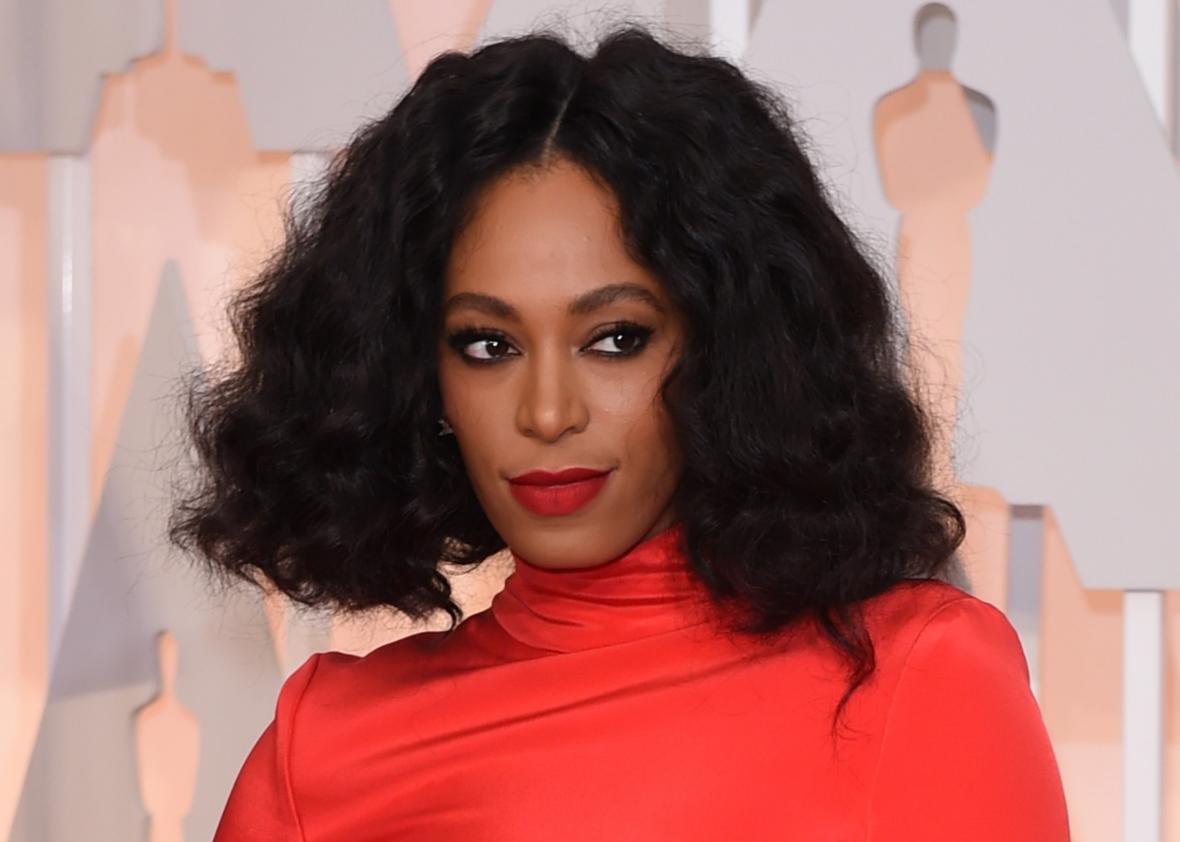Singer and actress Solange Knowles took a family outing to Friday night’s Kraftwerk concert at the Orpheum in New Orleans, taking her husband Alan Ferguson, her son Daniel Julez Smith Jr., and her son’s friend Rasheed to hear the electronic music pioneers perform. In a since-deleted series of tweets sent that night, Beyoncé’s younger sister recounted being harassed by four older white women who sat behind her. Now she’s expanded her account into an essay about her experiences as a black woman in predominantly white spaces going back to third grade. Some of those experiences are less relatable than others—poor treatment on the train from Milan to Basel, for instance—but Knowles’ second-person essay documents the tone all of these encounters have in common:
It usually does not include “please.” It does not include “will you.” It does not include “would you mind,” for you must not even be worth wasting their mouths forming these respectable words. Although, you usually see them used seconds before or after you.
You don’t feel that most of the people in these incidents do not like black people, but simply are a product of their white supremacy and are exercising it on you without caution, care, or thought.
Many times the tone just simply says, “I do not feel you belong here.”
Knowles then recounts her Kraftwerk concert experience in detail, starting with coercing her not-very-enthusiastic son to come along because “you and your husband are always talking to your son about expansion and being open to other things and experiences.” (Has anything good ever come of accepting an invitation to go to a Kraftwerk concert with your parents?) Immediately on arriving, a black usher mistakenly believed her son and his friend (both 11 years old) were using e-cigarettes when it was the white men seated in front of them. But the trouble really started when four older white women, unhappy that Knowles was dancing—to “Hall of Mirrors,” which is heroic to begin with—started yelling at her to sit down. She was mostly baffled:
You are also confused as to what show you went to. This is a band that were pioneers of electronic and dance music. Surely the audience is going to expect you to dance at some point.
Shortly afterwards, the women escalated to throwing trash at Knowles, hitting her with a half-eaten lime. Knowles writes about the double-bind she found herself in, knowing that telling the story of women who literally pelted her with trash would invite hatred:
You know when you share this that a part of the population is going to side with the women who threw trash at you. You know that they will come up with every excuse to remove that huge part of the incident and make this about you standing up at a concert “blocking someone’s view.”
…
You realize that you never called these women racists, but people will continuously put those words in your mouth.
What you did indeed say is, “This is why many black people are uncomfortable being in predominately white spaces,” and you still stand true to that.
Her essay builds to a moving conclusion about claiming her space in the world; read it in full at her website.
